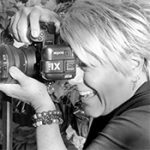Intro by Skip Cohen
One of the things I love most about sharing content here on the Marathon blog is the lessons I learn myself, and from some incredibly inspirational people in the industry. Bryan Caporicci has been a good buddy for a long time. We initially met through social media, but over the years have spent time together at various conventions, here in Florida when he’s visiting with family and in plenty of restaurants as two knuckleheads who love food!
Well, Bryan is another photographer who walks the talk, and I learn something from him every time we’re hanging out together. The post I chose to share here is a little longer than usual, but it’s loaded with wisdom and hits on a challenge so many of us deal with – comparing ourselves to other businesses or photographers.
The truth is, the only comparison you should be making is to the face in the mirror! And as Bryan points out in his post, when you compare yourself, especially your success in business to other entities you NEVER know the real story!
A good friend who I see at conventions in Las Vegas every year always tells me a story about how much he won the night before at the craps table – but he never tells me how much he lost the night before that!
Stay focused on everything you need to build your brand and skill set, only comparing yourself to who you were yesterday!
By Bryan Caporicci
Have you seen a successful photographer and wished you were where they are? Have you ever seen someone do something spectacular, and then say “wow, I can’t do that”? Have you ever seen someone make something that you struggle with look so easy?
Admit it … You’ve compared. It’s ok. Everyone does it. It gives you a gauge; something to measure yourself by and something to evaluate off of. Comparing is a dangerous trap, though, because you usually don’t know the (full) truth, and you likely don’t know the context.
Let me explain …
Picture yourself at a pond.
YOU SEE a duck swimming in the water, gracefully gliding along the surface. It moves effortlessly, leaving a small, almost unnoticeable ripple behind it. You might say that swimming is easy for the duck. You might say it comes naturally. But this is far from the truth.
Under the surface, the duck’s feet are moving furiously. And at that, the duck didn’t always swim this way. Ducks ease into swimming from an early age. And even once they get the hang of it, they stick by their mommy duck until they are old enough and confident enough to go out on their own.
We see others the way we see the duck…
What does this teach us about photography and business?
FIRST OF all – things aren’t always what they seem. You might think that someone has achieved success and it looks easy; but under the surface and behind closed doors, they are very likely working their butt off. Like the duck, their feet are moving furiously to make it seem like it is easy from the surface.
And second of all – success doesn’t happen overnight. Like the duck, the results you see today in others weren’t achieved with ease, and it’s likely been a slow process over time.
My point is this – the only true path to success is hard work, dedication and perseverance. Don’t look at someone else with a comparative mindset and say, “They’re successful, that looks easy”, because it’s not, and they probably didn’t get to where they are quick.
We often fall into the habit of comparing where we are today with where we want to be in the future. It’s a great way to motivate yourself, but we must not judge ourselves based on it.
Author Todd Henry calls this the “Aspiration Gap”, and in summary, the lesson to be learned is this:
What’s wrong with comparing? The 2 main problems with the comparative mindset are:
- You have to believe that what you see and hear is actually the truth.
- You don’t get to see the context surrounding the stories you hear.
Pretend you’re at a local networking event with a group of other photographers. You hear one photographer say, “I just booked a $10,000 wedding”, and you immediately start judging yourself based on this. You say “Wow, he’s getting $10,000 weddings?!” and wonder “why can’t I get a $10,000 wedding?”. These self-doubts are full of judgment.
Based on the criteria above, you have to first believe that they are telling the truth. Did they actually book a $10,000 wedding? If so, is that the norm, or was it a one-time thing? Even if it is the truth and it is the norm, you have no context into the situation. Maybe that $10,000 wedding includes 3-days of coverage, a huge main wedding album, 4 copies of the album for the family and 5 large wall portraits. Does that $10,000 still seem high?
Further to that; you’re judging the story without understanding the context of the business model. Maybe that photographer has a high-end commercial studio that costs them $2,500/month in rent. Maybe they have a full-time studio manager that they pay $60,000/year. For those reasons, maybe they need to make more money than you do in order to break-even.
There is so much more to the story than we know, and so for that reason, we can’t just judge based on face-value.
We can’t look at the duck gliding elegantly and gracefully on the surface, say “that looks easy”. We can’t judge based on assumptions and a limited amount of knowledge.
What’s the alternative, though?
I believe the only person you should compare yourself to is the person you were yesterday.
Your growth and success should only be compared to where you’ve come from. It’s the only metric you can be confident with, the only one you know the context of, and the only one you can truly believe.
That being said, here are 3 pieces of advice I would like to share with regards to self-comparison:
- Pick something to measure by. If you don’t know what your measuring stick is, you’ll never know when you’ve grown. You must choose a metric – something specific – to measure by. Use it consistently as a means of comparison to make sure you’re on track and moving in the right direction.
- Have regular check-ins for measuring. You need to measure often and regularly so that you can stay on top of progress and know when you’re off-track.
- Be ok with pivoting. If you’re measuring the same thing consistently, then you’ll know when something is or isn’t working. You need to get on board with the concept of “pivoting”, which means to change direction when you know you’re going the wrong way. Accept this and be nimble. Pivot quickly and don’t lose steam going too far down the wrong path.
At the end of the day, remember that nothing comes easy. There are hundreds – no, thousands – of “overnight successes” that were 30-years-in-the-making (get it?). Things aren’t always what they seem to be, so don’t get down on yourself or judge yourself based on what you see on the surface.
Compare only to yourself. Work hard every day to be better than you were the day before. When you do that, you’ll be that photographer at the networking event that everyone else is comparing themselves to.

















